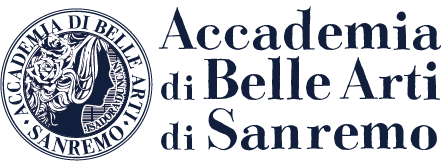ERASMUS POLICY STATEMENTS
The internationalization strategy of the Academy of Fine Arts of Sanremo mainly passes through the adhesion and promotion of the Erasmus Program, and aims for the next six years to intensify student and staff mobility exchanges and continue the expansion of the network of Bilateral agreements with other related academic institutions (especially Fine arts Faculty from northern Europe). This is to increase awareness, among all those who work within our Institution, of the importance of a European supportive and collective space for the growth of individuals.
After the award of the ECHE, our Institution intends:
- To implement the comparison with the innovative teaching methods adopted by the member countries with which Bilateral Agreements are signed, especially in relation to:
- revision of the physical and architectural spaces dedicated to teaching and activities related to the creation of artistic artefacts;
- setting up of exhibition spaces and the logistics connected to it;
- remodeling of the functionality of the spaces available to be used for laboratory activities and the integration of new technologies of arts in e-learning teaching;
– To promote the expansion of partnerships and the shared planning of research and experimentation activities in cultural and artistic production (aimed at joint and itinerant exhibitions);
- To product these activities together with other public and private institutions active in the territory of the Liguria and neighboring Regions that will be made aware of the mission of the Erasmus + Program and the values it conveys. This will aim to recognize and share the importance of European inclusion values and to break down national barriers.
- To join the Erasmus program, in this way, will create a bridge between the past (the artistic tradition that Urbino represents as the birthplace of Raffaello Sanzio, symbol of the Italian Renaissance) and the future, that to say a conception of modernity that knows look at alternative models in the design of the relationships between territory, art and environment protection.
- To rethink, starting from the experience gained during the Covid-19 pandemic, the role of research in new art technologies in the preparation of distance learning aimed at Erasmus + mobility students.
The goal is that they can fully access, participate, and interact remotely, even when they choose to continue residing in their country of origin, to the didactic offer of the Academy.
This in accordance with the principles of accessible and inclusive education, as defined in the priorities of the European Education Area.


